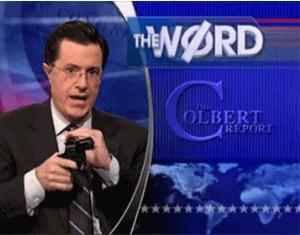An initiative to undo the state legislature's undoing of Montana's 2004 voter-approved medical marijuana program appears poised to make the ballot as a Friday deadline draws near.
Federal gun control laws have long barred "addicts" or "illegal drug users" from owning firearms, but a recent restatement of that law with explicit reference to medical marijuana patients is raising eyebrows -- and concerns.
Do you read Drug War Chronicle? If so, we need your feedback to evaluate our work and make the case for Drug War Chronicle to funders. We need donations too.
New York state has decriminalized marijuana possession, but you wouldn't know it from New York City's horrible pot bust numbers. That's about to change.
New poll numbers from California suggest a longer road ahead than marijuana legalization supporters had hoped.
States' rights can take a conservative Republican to some unexpected places, like supporting medical marijuana. Rick Perry is against medical marijuana but for allowing it as a states' rights issue, and Rick Santorum is attacking him for that.
As he waited in a Wisconsin holding cell to be transferred to state prison to serve a marijuana trafficking sentence, iconic activist Dana Beal was stricken with a heart attack. He is currently in intensive care under sedation.
Every two years drug policy reformers from across the United States and around the world come to the International Drug Policy Reform Conference to listen, learn, network and strategize together for change. This year the conference is in Los Angeles, in November, and StoptheDrugWar.org is a partner.
It looks like the Czech Republic will be the next European country to embrace medical marijuana.
The Mexican border town of Matamoros was a virtual war scene Tuesday, and that's just one low-light in another week of unrelenting prohibition-related violence south of the border.
Nine more dirty cops this week. Of four incidents, two were on the border.
A pending cocaine warrant may have led a Miami drug suspect to flee into a canal, where he drowned.
Events and quotes of note from this week's drug policy events of years past.
Even with the last voter signatures due to be turned in Friday afternoon, it now appears that an initiative referendum campaign to undo regressive changes in Montana's medical marijuana law will be on the November 2012 ballot. Organizers for IR-124 told the Chronicle Wednesday they had already turned in 40,000 signatures, well in excess of the 24,337 valid voter signatures needed to make the ballot and that they expected to turn in thousands more by Friday's 5:00 pm deadline.

Gov. Schweitzer vetoed one anti-medical marijuana bill, but gave in the second time.
As of Wednesday, the
Montana Secretary of State's office reported that 19,973 valid signatures had been received, but that is a lagging indicator. In Montana, signatures are handed in first to county officials, who validate the signatures, and then send them on to Helena. As many as 10,000 gathered signatures are being examined by county officials now, with more still coming in the next couple of days.
"We probably have about 10,000 yet to be processed, and we'll give them another few thousand between now and then," said Rose
Habib of
Patients for Reform -- Not Repeal, which is spearheading the effort. "Signature gathering has gone really well, and we're confident we will make the ballot. We're just waiting for the counties to finish counting what we're giving them.
Montana law also requires initiatives to get signatures from 5% of the voters in at least 34 of the state's 100 legislative districts. So far, the initiative has done that in 31 districts, and the campaign is confident it will pass that hurdle as well.
The almost all-volunteer effort -- there were a handful of paid signature gatherers in the last two weeks -- was a success because people were strongly motivated,
Habib said. "People feel very strongly they were not represented by their legislature, and what they do and how they earn a living and how they medicate themselves is something that is completely defensible and needs to be dealt with responsibly by the legislature," she said.
"Things look really good. It's pretty amazing what a volunteer effort has been able to do," said Matt
Leow of M+R Strategic Services, a political consultancy firm brought in to help manage the campaign. "We've worked on many, many of these campaigns, and we've never seen anything like the volunteer effort here."
"By all accounts, this has been an impressive volunteer effort," said Kate
Chowela of the
Montana Cannabis Industry Association, which had begun working toward an initiative earlier this year. "No one wants to say much before all the numbers are in, but we are confident this will make the ballot."
The initiative campaign is in response to the Republican-controlled state legislature, which first passed a bill to completely repeal the state's voter-approved medical marijuana law, and then, after it was vetoed by
Gov. Brian Schweitzer (D), passed another bill, Senate Bill 423, essentially gutting the state's medical marijuana distribution system. That bill was challenged in court, and parts of it were enjoined, but other onerous portions of it remain in effect.
That will be the case until and unless
Montanans vote for the initiative next November. Organizers could have attempted to repeal the law outright through the initiative process, but that would have required three times the number of signatures needed to get this measure on the ballot, and that was beyond the reach of the ill-funded, nearly all-volunteer effort.
"This new program does not work. Seriously ill patients are having trouble getting access to their medicine in the wake of SB 423," said Sarah
Baugh, a patient and spokesperson for Patients for Reform -- Not Repeal. "
Montanans agree that patients with serious conditions should have access to medical marijuana and that government has no business interfering in medical decisions between those patients and their doctors. SB 423 goes too far and harms patients’ rights."
The legislative attack on medical marijuana this year came after the state's program mushroomed in the wake of the Obama administration's October 2009 Depart of Justice memo suggesting that the federal government would not interfere with people following state law in states where medical marijuana is legal.
Along with a rapid growth in the number of registered card holders, the state saw an explosion of storefront dispensaries, as well as some operators willing to push the envelope in ways that deeply affronted some conservative
Montanans. Medical marijuana caravans crisscrossing the state, doctors' recommendations issued remotely online, and defiant public pot-smoking displays didn't play well in parts of the state.
That led to intense debates about how to deal with medical marijuana in Montana, and after a strong Republican showing in the November 2010 elections sent a large Tea Party contingent to Helena, the legislature acted more like a wrecking ball than a renovation service when it came to the medical marijuana program.
"When those folks got to the statehouse, they were all about their ideological and moral imperatives," said
Habib. "They wanted to impose their world-view on everyone, and there was some real railroading going on. We don’t think that what they did was representative of what Montana voters believe, but the legislature still stands by its position."
The shenanigans of some Montana medical marijuana industry players may have helped swing the pendulum toward the forces of reaction in 2010 and so far this year, but the heavy-handedness and overreaching of the Republican legislature is succeeding in swinging it back in a more progressive direction. The impressive volunteer campaign to make the ballot is one indication of that, but the real proof that the climate has changed will have to wait for November 2012.
back to top
In a memo released last week, the US Department of Justice has notified federal firearms dealers that medical marijuana patients are "addicts" or "unlawful drug users" who cannot legally own weapons or ammunition. A medical marijuana registration card is proof enough to deny a weapons sale, the memo said. That has medical marijuana advocates crying foul, but national gun rights groups -- not so much. [Update: One national group now has responded; see the statement from Gun Owners of America in the text below.]

No "Sweetness" for Medical Marijuana Patients, ATF Says
The memo was authored by Arthur Herbert, Assistant Director for Enforcement Programs and Services for the Bureau of Alcohol, Tobacco & Firearms (ATF). Herbert said he wrote the memo after receiving "a number of inquiries about the use of marijuana for medical purposes, and its applicability to federal firearms laws."
Herbert cited the section of the federal criminal code that prohibits anyone who is "an unlawful user of or addicted to any controlled substance" from possessing firearms. He reminded firearms dealers that they cannot legally sell guns to people they have reasonable cause to believe are illegal drug users or addicts and wrote that anyone presenting a medical marijuana registration card is providing reasonable cause for the dealer to believe they are illegal drug users or addicts.
Despite the Obama administration's 2009 Justice Department memo famously vowing not to go after patients and providers in compliance with state laws, the federal government has never wavered from its stance that, despite state medical marijuana laws, marijuana remains a Schedule I controlled substance.
"Any person who uses or is addicted to marijuana, regardless of whether or not his or her state has passed legislation authorizing marijuana use for medicinal purposes, is an unlawful user of or is addicted to a controlled substance and is prohibited by federal law from possessing firearms or ammunition," Herbert wrote.
While the federal gun law is not new, its restatement with specific reference to medical marijuana patients is, and that has advocates concerned.
"This is more evidence of the Obama administration's malfeasance with regard to medical marijuana," said Dale
Gieringer, long-time director of
California NORML. "They have a real penchant for over-regulation. We've seen it with the Treasury rules and warnings to banks, we've seen it with the continued arrests by other federal agencies. What's particularly disturbing is that this memo comes from a Justice Department that three years ago said it was going to respect state laws regarding medical marijuana."
"I don't think the feds are going to go after gun dealers selling to medical marijuana patients, but the important this is that if you use this medicine your constitutional rights are forfeit," said Morgan Fox, communications director for the
Marijuana Policy Project. "This is just a travesty. Trying to treat medical marijuana patients like second-class citizens and stripping them of their rights as they are dealing with illness is just despicable."
"The possession of a firearm could make a medical marijuana patient vulnerable to additional charges and sentencing if convicted of a federal marijuana crime, and patients should be aware of that," said Kris Hermes, spokesman for
Americans for Safe Access. "However, it is not the federal government's place to prevent medical marijuana patients from owning firearms. Following in the footsteps of the Justice Department, Veterans Affairs, and Housing and Urban Development, the ATF memo illustrates how yet another arm of the Obama Administration has demonized medical marijuana and the patient community. The ATF memo underscores the need for a comprehensive policy from the Obama administration that treats medical marijuana as the public health issue that it is," Hermes concluded.
While medical marijuana supporters have expressed outrage, groups that can usually be counted on to stand up for Second Amendment rights have been largely silent. Although the
National Shooting Sports Foundation was the first place outside ATF to post the open letter, it has not responded to repeated Chronicle requests to comment on the Second Amendment rights of medical marijuana users. Neither has the
National Rifle Association.
After this article went to publication,
Gun Owners of America executive director Larry Pratt belatedly replied to our requests for comment.
"ATF seems to be dazed now that their Fast & Furious accessory-to-murder scheme has come to light," Pratt said. "Their first blind punch was the demand letter regarding multiple rifle sales in the four southwest border states. Not only is it a stupid attempt to try to blame gun stores for what ATF was telling them to do (or doing it directly themselves), but it is illegal. Now they want FFLs to profile gun buyers to guess who looks like a marijuana user. Again, they have no legal authority to ask for such an impossibility. What's not to like?"
In Montana, where both medical marijuana and gun rights are perennial hot topics, patients and firearms enthusiasts seem to have started on the same page.
"It is egregious that people may be sentenced to years in a federal prison only because they possessed a firearm while using a state- approved medicine," said Gary
Marbut, president of the
Montana Shooting Sports Association.
"This is making people pretty crazy here in Montana," said Kate
Chowela of the
Montana Cannabis Industry Association. "This is a gun owning state, hunting is a big part of our tradition, we have that whole independent frontier thing going on. The government is rescinding the Second Amendment rights of people who use marijuana for their medical conditions. We have had the feeling that this was the policy, but now that we see it in writing for the first time, that really cements it," she added.
The policy may be cemented, but that doesn't mean the law on Second Amendment rights for medical marijuana patients is set in stone.
"It's all well and good for a federal agency to tell us what they think the law is, and that's what ATF has done," said Keith
Stroup, founder and current counsel for
NORML. But there is no federal or state court decision that has held a medical marijuana patient is disqualified from owning a gun."
"This breaks down like Justice Department opinion in general. They say they have a legal right to deny gun ownership, but they can't force the states to comply with that; they'll just have to enforce the law themselves," Fox said. "This is just a restatement of policy; there have been no court battles over it yet."
There could be one coming. In a case decided in May,
Willis v. Winters, the Oregon Supreme Court upheld circuit and appeals court rulings that the Jackson and Washington county sheriffs could not deny concealed weapons permits to medical marijuana patients. The Oregon Sheriff's Association has now petitioned the US Supreme Court, which will consider whether to take up the appeal in an October 7 conference.
"In the Oregon concealed handgun cases, we argued that medical marijuana patients are not 'illegal drug users or addict' as that term is used in federal law, based on the legislative history of the law," explained attorney Leland Berger, who argued the case."The Oregon sheriffs have petitioned the US Supreme Court for
certiori," Berger said. "I wrote the court saying that the cases were not
certiori worthy and that we waived a response to the petition unless they asked us to file one."
In the meantime,
CANORML's Gieringer had some common sense advice for patients and dispensary operators. "If you're a medical marijuana patient, don't mention it when you go buy a gun," recommended
Gieringer. But he had a word of warning for dispensary operators. "I assume the feds will be ready to use this if they are prosecuting a dispensary and there were any guns on board," he said.
back to top
Dear reformer:
Thank you for helping StoptheDrugWar.org publish 700 issues of Drug War Chronicle!
If you value the service that Drug War Chronicle and StoptheDrugWar.org provide, I hope you'll consider supporting us in one or both of two ways:
- We are in between newsletter grants, and that makes our need for individual donations more important right now -- Drug War Chronicle is free to read but not to produce! Click here to make a donation by credit card or PayPal, or to print out a form to send in by mail.
- Please send quotes and reports on how you put our flow of information to work, for use in upcoming grant proposals and letters to funders or potential funders. Do you use StoptheDrugWar.org as a source for public speaking? For letters to the editor? Helping you talk to friends or associates about the issue? Research? Personal edification? Have you changed your mind about any aspects of drug policy since subscribing, or inspired you to get involved in the cause? Do you reprint or repost portions of our bulletins on other lists or in other newsletters? Do you have any criticisms or complaints, or suggestions? We want to hear those too. Please send your responses -- one or two sentences would be fine; more is great, too -- by email [email protected] or reply to a Chronicle email or use our online comment form. Please let us know if we may reprint your comments, and if so, if we may include your name or if you wish to remain anonymous. IMPORTANT: Even if you have given us this kind of feedback before, we could use your updated feedback now too -- we need to hear from you!
If you prefer to donate by mail, you can send your check or money order to: DRCNet, P.O. Box 18402, Washington, DC 20036. Make your check payable to DRCNet Foundation to make a tax-deductible donation for Drug War Chronicle -- remember if you select one of our member premium gifts that will reduce the portion of your donation that is tax-deductible -- or make a non-deductible donation for our lobbying work -- online or check payable to Drug Reform Coordination Network, same address. We can also accept contributions of stock -- email [email protected] for the necessary info.
Again, thank you for helping us reach this milestone, and for joining us today to celebrate it -- a brighter future lies ahead, with your help.
Sincerely,

David Borden, Executive Director
StoptheDrugWar.org
Washington, DC
http://stopthedrugwar.org
back to top
New York City may soon shed its infamous reputation as the pot bust capital of the world. Police Commissioner Ray Kelly issued an internal order on September 19 to the NYPD telling officers they can no longer arrest people for marijuana possession in public view if the marijuana was not in public view before officers either searched the person and produced it or the person produced it after an officer's demand that he empty his pockets.

NYC City Hall
Although New York state has decriminalized the possession of small amounts of marijuana, the NYPD has made a practice of stopping people -- mainly young people of color -- on the streets, searching them or demanding they empty their pockets, then charging them with possession in public view. Unlike simple pot possession, which is only a
ticketable offense, possession in public view is an
arrestable offense that typically results in a day-long stay in jail before the defendant can appear before a judge.
New York City and the NYPD have come under increasingly heat over the practice, which has resulted in tens of thousands of marijuana in public view arrests each year in recent years. The policy began under the administration of then Mayor Rudy
Giuliani, but has continued under the administration of Mayor Michael Bloomberg, who famously admitted having smoked pot and enjoying it.
Both city council members and state representatives have recently taken up the call to end the practice. A bipartisan bill to decriminalize the possession of small amounts of marijuana in public view was recently introduced in Albany.
"Questions have been raised about the processing of certain marihuana arrests," Kelly wrote in the internal order delivered to commanders this week. "At issue is whether the circumstances under which uniformed members of the service recover small amounts of marihuana ... from subjects in a public place support the charge of Criminal Possession of Marihuana in the Fifth Degree.
"The specific circumstances in question include occasions when the officers recover marihuana pursuant to a search of subject's person or upon direction to the subject to surrender the contents of his/her pockets or other closed container. A crime will not be charged to an individual who is compelled to engage in the behavior that results in the public display of marijuana. Such circumstances may constitute a violation of [the decriminalization statute],
not [the possession in public view statute], a Class B misdemeanor.
"To support a charge [under the possession in public view statute], the public display of marijuana must be an activity taken under the suspect's own volition. Thus, uniformed members of the service
may not charge the individual with [violation of the possession in public view statute], if the marihuana recovered was displayed to the public view at the officer's discretion."
So will New York City marijuana arrest numbers now plummet?
back to top
Even as a trio of proposed California marijuana legalization initiatives are getting underway in an effort to make the November 2012 ballot, a poll released last Thursday suggests they could face an uphill battle. The Public Policy Institute of California poll had 51% opposing pot legalization, with 46% in favor.
In the survey, only the San Francisco region favored legalization, while a majority of Southern California and Central Valley residents opposed it. Not surprisingly, liberals and Democrats were more supportive of legalization than conservatives and Republicans.
In 2010, when Proposition 19 was on the ballot, it led in polls throughout the run-up to the election, sometimes achieving more than 50% approval, before the poll numbers tightened and then reversed in the final weeks of the campaign. Prop 19 lost with 46% of the vote, the same number the generic marijuana legalization question is garnering now.
The common wisdom among initiative and referendum experts is that an initiative should be polling at 60% favorable or above at the beginning of the campaign because support will inevitably drop as Election Day draws near, more people start paying more attention,
undecideds are forced to decide, and opponents start attacking.
The man behind Prop 19,
Oaksterdam medical marijuana entrepreneur Richard Lee, said earlier this month that his group's effort to return to the ballot in 2012 is
"pretty much dead, the funders didn't come through."
The funders haven't been coming through for the other proposed initiatives, either, according to the California Secretary of State's office. It reports no significant donations so far for Lee's
Coalition for Cannabis Policy Reform, the
Repeal Cannabis Prohibition Act of 2012 initiative sponsored by a pair of North Bay attorneys and Northern California activists, the
Regulate Marijuana Like Wine initiative championed by Libertarian and marijuana activist Steve
Kubby and retired Judge Jim Gray, and the (reduce)
Marijuana Penalties Act of 2012 initiative, being pushed by long-time Southern California political operative Bill Zimmerman.
If any of these proposed initiatives are going to attract the serious funding necessary to gather signatures to make the ballot and then pay for an ad campaign as the election draws near, there is going to have to be some evidence of a shift in these numbers. And it will have to happen soon, as the cost of gathering the substantial number of signatures needed to get an initiative to the ballot in California escalates as the time remaining to do so counts down.
back to top
With the contest for the Republican presidential nomination now in full swing, the candidates are looking for any issue on which to attack their competitors. Former Pennsylvania Sen. Rick Santorum thinks that in medical marijuana he has found an issue with which to lay into arguable front-runner Texas Gov. Rick Perry.
Santorum is attacking Perry for the latter's states' rights approach to medical marijuana, a stance the Texas governor articulated in his book
Fed Up! and which his spokesman reaffirmed this week to the
Washington Post. In
Fed Up!, Perry wrote that while he opposed marijuana legalization, he supported the right of states like California to legalize it themselves.
"When the federal government oversteps its authority, states should tell Washington they will not be complicit in enforcing laws with which they do not agree," he wrote. "Again, the best example is an issue I don't even agree with -- the partial legalization of marijuana. Californians clearly want some level of legalized marijuana, be it for medicinal use or otherwise. The federal government is telling them they cannot. But states are not bound to enforce federal law, and the federal government cannot commandeer state resources and require them to enforce it."
That wasn't the only reference to marijuana and state rights in the book. "If you don't support the death penalty and citizens packing a pistol, don't come to Texas," Perry wrote. "If you don't like medicinal marijuana and gay marriage, don't move to California."
Queried this week by the Post about the passages, Perry spokesman Mark Miner reaffirmed Perry's position. "While the governor is personally opposed to legalizing the use of medical marijuana, if states want to allow doctor prescribed medical marijuana, it seems to him that under the 10th Amendment, they have the right to do so."
That was something
Santorum, who is struggling to break into the front ranks, thought he could sink his teeth into. "
Gov. Perry was quite clear too in his recently published book, that the definition of marriage should be left up to 50 different state interpretations," a
Santorum spokesman told the Post. "It's certainly
Gov. Perry right to believe marriage can be redefined at the state level, that marijuana can be legalized and that tax dollars should be used to give illegal aliens special college tuition rates, but that's completely out of touch with what most Americans believe."
But on medical marijuana, at least, it is
Santorum who is out of touch.
National polls on medical marijuana in the past decade show support levels of above 60% in every poll, and up into the 80% zone in some polls.
Two other Republican contenders, Rep.
Ron Paul of Texas and former
Gov.
Gary Johnson of New Mexico, support drug policy reform including medical marijuana.
(This article was published by StoptheDrugWar.org's lobbying arm, the Drug Reform Coordination Network, which also shares the cost of maintaining this web site. DRCNet Foundation takes no positions on candidates for public office, in compliance with section 501(c)(3) of the Internal Revenue Code, and does not pay for reporting that could be interpreted or misinterpreted as doing so.)back to top
Iconic activist Dana Beal suffered a heart attack while in a Wisconsin jail awaiting transfer to a state prison to begin serving a 2 ½ prison sentence for marijuana trafficking. According to Celebstoner.com and the Free Dana Beal and Free Ourselves Facebook page, Beal was stricken Tuesday morning, and at last report, he was hospitalized in stable condition under sedation at the Intensive Care Unit at St. Mary's Hospital in Madison.

Beal leading Global Marijuana March in NYC, 1994 (wikimedia.org)
Last week, Beal was sentenced to prison in Wisconsin after pleading guilty to trafficking 180 pounds of pot in a bust that unraveled when his 1997 Chevy van got pulled over for expired tags and no tail light. He also got 2 ½ years of probation to be served after his jail time. He got credit for 267 days already served.
Despite
courtroom testimonials from Beal supporters, including "Guru of Ganja" Ed Rosenthal and Wisconsin medical marijuana patient
Jacki Rickert, Beal got prison time. But it was less than the four years the prosecution asked for and well below the 15 year maximum allowable under Wisconsin law.
Beal was already on probation after being busted with another 100-pound-plus load in Nebraska in 2009. The previous year, the New York City-based activist saw more than $100,000 in cash seized in Illinois, although he avoided any convictions in that case. He also has previous drug convictions in 1971, 1987, 1993 and 2006.
When not fighting his own cases, Beal has built a career as an activist, first with the
Yippies in the early
1970s, then as a founding organizer of the Global Marijuana Marches, and in recent years, as a crusader for the addiction-treating powers of
ibogaine with his group
Cures Not Wars.
back to top
StoptheDrugWar.org (DRCNet) is pleased to be a partner in the upcoming 2011 International Drug Policy Reform Conference, this November 2-5 at the Westin Bonaventure in Los Angeles.
The Reform Conference, sponsored by our friends at the Drug Policy Alliance, is the major biennial gathering of drug policy reformers of all kinds. The last one, held in Albuquerque in 2009, brought together over 1,000 attendees representing 30 different countries. This year attendees will have the opportunity to spend three days interacting with people committed to finding alternatives to the war on drugs while participating in sessions given by leading experts from around the world. Click here to register -- early bird rates are available through September 16, and discounts are available for students.
Some testimonials from the 2009 conference:
"You leave the conference inspired and informed. Meeting this crowd of wise, energetic kindred spirits recharges your reform batteries."
--Michael Jourdan, Centre of Alcohol and Drug Research, Copenhagen, Denmark
"This is the only conference that combines X-treme intelligence, passion, and practical applications. It is the best I ever attend."
--Patt Denning, Harm Reduction Therapy Center, San Francisco, California
"A living breathing think tank of like minds, crafting out solutions that keep people's dignity and human rights intact."
--Waheedah Sahabzz-El, Community HIV / AIDS Mobilization Project, Philadelphia, Pennsylvania
"This conference provided a new beginning for me, I now have a true passion for DPR."
--Susanne Widmer, Albuquerque, New Mexico
"The Reform Conference gave me the courage to return to my Canadian community and give voice to the common sense of Drug Policy Reform. The experience provided me with the evidence, language and tools to be a credible, educated leader in changing the way we approach the issue of substance use in our community."
--Patty Hajdu, Thunder Bay District Health Unit, Thunder Bay, Ontario, Canada
Hope to see you there.
back to top
The Czech Republic is on the path toward legalizing medical marijuana. The Ministry of Health said last week it plans to remove marijuana from its list of proscribed substances and allow it to be prescribed by doctors.

Prague Lesser Town Bridge Towers (praguewelcome.cz)
"By the end of this year we will submit to parliament an amended law on addictive substances which will move marijuana from the list of banned substances to the list of those which can be prescribed," Deputy Health Minister Martin
PlÃÅ¡ek pledged.
Medical marijuana already enjoys political support in the Czech Republic, which liberalized its drug laws last year. Under that law, possession of small amounts of pot and cultivation of small numbers of plants is decriminalized. Prominent politicians backing medical marijuana include
Miroslava Nemcova of the Civil Democrats, who is speaker of the lower chamber of parliament, Public Affairs Party chairman
Radek John and other prominent party members.
Although the Czech Republic is seeing a boom in home marijuana growing, with grow shops in even the smallest towns, Deputy Minister
Plisek said he would prefer to see marijuana imported for medical use rather than relying on a local industry that could see marijuana diverted into the recreational market.
"We must take steps to ensure that there is no massive abuse without a doctor's prescription," he added.
The ministry must also determine what sort of distribution system to set up. The Israeli model, where the state is licensing medical marijuana farms, is one oft-cited system.
back to top
by Bernd Debusmann Jr.
Mexican drug trafficking organizations make billions each year smuggling drugs into the United States, profiting enormously from the prohibitionist drug policies of the US government. Since Mexican president Felipe Calderon took office in December 2006 and called the armed forces into the fight against the so-called cartels, prohibition-related violence has killed around 40,000 people, including more than 15,000 last year. The increasing militarization of the drug war and the arrest or killing of dozens of high-profile drug traffickers have failed to stem the flow of drugs -- or the violence -- whatsoever. The Merida initiative, which provides $1.4 billion over three years for the US to assist the Mexican government with training, equipment and intelligence, has so far failed to make a difference. Here are a few of the latest developments in Mexico's drug war:
Thursday, September 22
In Veracruz,
the Mexican navy announced that 11 bodies were discovered in several parts of the city. Additionally, police assaulted three journalists outside a morgue and ordered them to delete photos that they had taken.
In
Sinaloa,
gunmen shot and killed the nephew of former Juarez Cartel boss Amado Carrillo Fuentes, "the Lord of the Skies." Francisco Vicente Castillo Carrillo, 18, was traveling along a highway when he was intercepted by gunmen wielding AK-47's, causing him to lose control of his vehicle, which caught on fire.
Saturday, September 24
On several Mexican websites,
a group of armed paramilitaries posted a message in which they vow to eliminate the
Zetas Organization. The men, all dressed in black, claim to be the "armed wing of the people" and offer apologies to the public and the Mexican government, and condemn corrupt civil servants in various Veracruz municipalities. A similar video was recently issued by a
Sinaloa Cartel allied organization called the Cartel
Jalisco Nueva Generacion, which is challenging the
Zetas for control of the Veracruz region.
Sunday, September 25
In
Ciudad Juarez,
at least eleven people were murdered in several incidents in the city. Among the dead
was the chief of an important municipal police station in
Babicora who was gunned down as he walked to his car at the end of his shift.
Monday, September 26
In Mexico City,
the Defense Secretariat announced that 22 suspected cartel members were killed and three soldiers wounded during a 15-day sweep in the states of Nuevo Leon,
Tamaulipas,
Coahuila and San Luis
Potosi. Operation Scorpion, which began on September 10, resulted in 13 engagements and the rescue of 14 kidnap victims. The operation also netted 118 handguns, 459 rifles, 84 grenades, 272 vehicles, and significant quantities of cash and narcotics.
In July, a similar operation, "Northern Lynx," led to the arrest of nearly 200 suspects and the death of another 30, most thought to have been members of the
Zetas.
In
Ciudad Juarez,
at least three people were killed, including a woman who was kidnapped and later found with her throat slit. One of the other victims was discovered with his hands and feet bound and executed.
Tuesday, September 27
In Acapulco,
five decomposing heads were found outside an elementary school. The heads were placed in a white bag atop a wooden box, in full view of students and faculty.
In
Tamaulipas,
heavy fighting was reported in several cities. In
Matamoros, prolonged
firefights took place in several locations, in some instances lasting over half an hour. The initial gun battle broke out between rival cartels, but Mexican authorities arrived shortly after, leading to a three-way fight. Fighting later spread to other areas of the city as gunmen set up road blocks to interfere with the army's movements. The International Bridge to the US was temporarily closed.
In the Rio Bravo area, several incidents were reported, including grenade attacks on a movie theater and a state police building.
In
Reynosa, three different grenade attacks were reported which resulted in no casualties. Grenade attacks were also reported on a Federal Electric Commission warehouse in
Ciudad Victoria.
On a highway near McAllen, Texas,
a 32-year old Mexican national was shot and killed along with a 22-year old passenger. Authorities have said that the driver, Jorge
Zavala, has ties to the Gulf Cartel in
Reynosa and
Matamoros, leading to speculation that he was killed because of an internal power struggle within the cartel.
In
Ciudad Juarez,
at least four people were murdered. Among the dead were two men who were snatched by heavily armed gunmen from a residence earlier in the day. Both were found shot dead and showing signs of torture.
Editor's Note: We can no longer accurately enumerate the number of deaths in the Mexican drug wars this year. The Mexico City newspaper El Universal had been running a tally on which we relied, but it stopped. Our estimate for this year's death toll is just that -- an estimate.]
Total Body Count for 2007 (
approx.): 4,300
Total Body Count for 2008 (
approx.): 5,400
Total Body Count for 2009 (
approx.): 9,600
Total Body Count for 2010 (official): 15,273
Total Body Count for 2011: (
approx.): 7,400
back to top
Nine more dirty cops this week. Of four incidents, two were on the border. Let's get to it:
In Romulus, Michigan,
the former Romulus police chief and five other former officers were arrested Monday on charges they stole thousands of dollars from the department's drug forfeiture accounts. Former Chief Mike St. Andre, his wife, and the five former officers had been under investigation in a probe stretching back three years. St. Andre's homes in Romulus and Garden City were raided earlier this year, and the chief resigned just two weeks ago. No word yet on the formal charges, but the chief and his wife are now free on bond.
In Tucson, Arizona,
a US Customs and Border Protection officer was indicted Monday on charges he knowingly let 547 kilograms of marijuana pass through his inspection lane at the Douglas crossing. Officer Luis Carlos Vasquez, 32, was charged along with five other people with conspiracy to possess with intent to distribute marijuana, possession with intent to distribute marijuana, conspiracy to import marijuana and importation of marijuana. Vasquez is out on a $100,000 personal appearance bond. He is looking at up to 40 years on each count, with a mandatory minimum of five years. The bust was conducted by an FBI border corruption task force, with help from the ICE Office of Professional Responsibility and the Douglas Police.
In Brownsville, Texas,
a former federal probation officer was sentenced Monday to 14 years in prison after copping to drug trafficking and bribery charges. Armando Mora had worked as a probation officer in Rio Grande City and admitted accepting bribes from members of a drug trafficking organization in exchange for sensitive, confidential information from government records. The cartels used that information to do background checks on people they were thinking about hiring as drivers.
In Boston,
a former Massachusetts jail guard was sentenced Tuesday to 2 ½ years in prison for his role in a plot to smuggle heroin to inmates at a middle-security prison near Boston. Ronald
McGinn Jr., 40, had sent text messages to an undercover FBI agent about the amounts he would smuggle and fees he would charge and was arrested in April while in possession of 29 grams of heroin.
McGinn went down after another jail guard snitched him out.
back to top
[Editor's Note: Drug War Chronicle is trying to track every death directly attributable to domestic drug law enforcement during the year. We can use your help. If you come across a news account of a killing or death related to drug law enforcement, please send us an email at [email protected].]

Margate Canal, Miami (wikimedia.org)
A Miami man drowned Saturday night attempting to flee a drug bust. Winston
Gaskin, 23, becomes
the 38th person to die in US domestic drug law enforcement operations so far this year.
According to
NBC-TV Miami, citing police sources, police responded to a call about narcotics activity at a convenience store on Northwest 19
th Street. When an officer engaged attempted to engage
Gaskin at the scene, he took off running and jumped into a canal. He only made it about half way across before he began struggling, then went under.
"The suspect swam for a little bit," before encountering trouble, said police spokeswoman Constance Stanley. "At that time, officers called paramedics and they assisted in pulling him out of the canal, performing CPR until paramedics arrived."
Gaskin was transported to Florida Medical Center in critical condition and was pronounced dead shortly before midnight.
"The police later found out that Mr.
Gaskin did have an arrest warrant out for cocaine possession," Stanley said, "so that could be the reason that he fled."
back to top
September 29, 1969: At the beginning of the second week of Operation Intercept, the Nixon Administration's failed, unilateral attempt to halt the flow of drugs from Mexico into the United States, the Bureau of the Budget (predecessor to the Office of Management and Budget) sends a scathing critique to the White House of the June report that served as the catalyst for the plan, calling it a "grossly inadequate basis for Presidential decision" and warning that its recommendations were based on faulty or unproven assertions.
October 4, 1970: Legendary singer Janis Joplin is found dead at Hollywood's Landmark Hotel, a victim of what is concluded to be an accidental heroin overdose.
October 2, 1982: Ronald Reagan, in a radio address to the nation on federal drug policy, says, "We're making no excuses for drugs -- hard, soft, or otherwise. Drugs are bad, and we're going after them. As I've said before, we've taken down the surrender flag and run up the battle flag. And we're going to win the war on drugs."
September 29, 1989: The domestic cocaine seizure record is set (still in effect today): 47,554 pounds in
Sylmar, California.
October 2, 1992: Thirty-one people from various law enforcement agencies storm Donald Scott's 200-acre ranch in Malibu, California. Scott's wife screams when she sees the intruders. When sixty-one-year-old Scott, who believes thieves are breaking into his home, comes out of the bedroom with a gun, he is shot dead. A drug task force was looking for marijuana plants. Interestingly, Scott had refused earlier to negotiate a sale of his property to the government. DEA agents were there to seize the ranch. After extensive searches, no marijuana is found.
September 30, 1996: President Bill Clinton signs into law the Omnibus Consolidated Appropriations Act for 1997.
FY1997 totals provide increased drug-related funding for the two leading drug law enforcement agencies in the Department of Justice: FBI ($2,838 million) and DEA ($1,001 million).
October 3, 1996: US Public Law 104-237, known as the "Comprehensive Methamphetamine Control Act of 1996," is signed into law by President Bill Clinton. It contains provisions attempting to stop the importation of methamphetamine and precursor chemicals into the United States, attempting to control the manufacture of methamphetamine in clandestine laboratories, to increase penalties for trafficking in methamphetamine and List I precursor chemicals, to allow the government to seek restitution for the clean-up of clandestine laboratory sites, and attempting to stop rogue companies from selling large amounts of precursor chemicals that are diverted to clandestine laboratories.
October 1, 1998: The increase in funding of prisons and decrease in spending for schools prompts protests by California high school students.
October 5, 1999: The war on drugs is "an absolute failure," says
Gov. Gary Johnson of New Mexico at a conference on national drug policies at the Cato Institute. Johnson, who drew sharp criticism from anti-drug leaders for being the first sitting governor to advocate legalizing drugs, argues that the government should regulate narcotics but not punish those who abuse them: "Make drugs a controlled substance like alcohol. Legalize it, control it, regulate it, tax it. If you legalize it, we might actually have a healthier society." Johnson also meets with founding members of Students for Sensible Drug Policy; footage from the meeting appears on CBS evening news.
back to top











